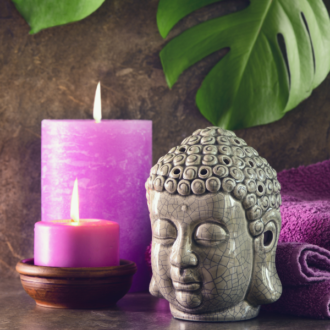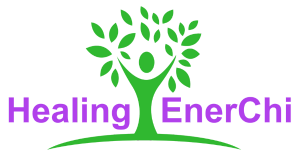What is Acupuncture?
Acupuncture is a medical therapy that was developed over 2,000 years ago in Asia. It stimulates specific points beneath the skin by the insertion of very thin “fine hair like needles”. This process restores the balance of the body’s energy, also known as “Qi” (pronounced chi).
It also helps the free flow of blood and electrical energy within the 14 major meridians, which are channel pathways the Chinese mapped within the body. Acupuncture, Herbal Medicine, Tai Chi, and cupping are some of the essential elements of Traditional Chinese Medicine.
How does Acupuncture work?
In traditional Chinese Medicine, there exists a meridian system through out the human body. In this system, these invisible passageways for energy are called meridians. There are certain points on the body (more than 360) that connect with certain organs and bodily functions. Point Groups on the body that apply to a specific organ or function are found along the same meridian.
In a healthy, normal functioning body, the energy in these meridians flow freely, resulting in a balanced system. When the flow of energy is interrupted from causes such as stress or injury, this energy is reduced, throwing your “Qi” off balance. By performing acupuncture using the points associated with the particular meridian involved, this Qi or balance is restored.
Does Acupuncture hurt?
Acupuncture needles are extremely thin made from silver alloy, typically stainless steel. You most likely will feel little or no discomfort as the needles are inserted, as the process is typically painless. What you might feel are different sensations including slight soreness, heaviness, numbness, tingling, warmth, or pressure. These energetic sensations differs from person to person. People often comment that the feeling is unfamiliar but pleasant and comforting.
What conditions can Acupuncture treat?
Many conditions may be treated, whether related to the musculoskeletal system, circulatory system, respiratory system, nervous system, and digestive system, as well as other common ailments and pains.
Musculoskeletal Conditions:
- General pain relief
- Control for arthritis
- Cervical Spondylopathy
- Knee pain
- Hand and foot pain
- Sciatica
- Shoulder pain
- Tennis or golfer’s elbow
- Lower back pain
- Neck pain
- Tendonitis
- TMJ disorders
- Sports injuries
- Plantar Fasciitis
- Carpal Tunnel Syndrome
Nervous System Imbalances:
- Anxiety
- Nervousness
- Sleeplessness
- Fatigue
- Depression
- Post-Traumatic Stress Disorder (PTSD)
- Seasonal Affective Disorder (SAD)
- Immune system suppression
- Poor memory and concentration
Circulatory Problems:
- High or low blood pressure
- Cold hands and feet
Respiratory Ailments:
- Asthma
- Allergies
- Sinus problems
Digestive Disorders:
- Crohns Disease
- Irritable Bowel Syndrome
- Ulcerative Colitis
- Diarrhea
- Constipation
- Acid Reflux
- Bloating
Other Common Ailments:
- Headaches and migraines
- Treatments to help stop smoking
- Male and female reproductive issues
- PMS and menstrual issues
- Menopausal symptoms
- Skin conditions (acne, eczema, psoriasis)
- Weight loss or weight gain
Book Your Initial Consultation Today!
Ready for your first step toward relief? Schedule your Initial Consultation Appointment online right now by clicking the button below.

FAQs
Is Acupuncture safe?
Acupuncture therapy has been used for thousands of years in China. Acupuncture is the treatment of choice for one-fourth of the world’s population! The needles are FDA approved, individually packaged, pre-sterilized, and disposed after a single use.
Acupuncture is considered low-risk compared to many conventional medical treatments and medications. Numerous studies have demonstrated the safety and effectiveness of acupuncture for various conditions. While bruising, soreness, or minor bleeding at the needle insertion sites are occasional side effects of acupuncture, these reactions are generally mild and temporary.
Always discuss your medical history, current conditions, and concerns with the acupuncturist before starting treatment.
Are Acupuncture needles clean?
Acupuncture needles are FDA approved. These needles are pre-sterilized and individually wrapped. After the needles are used, they are disposed.
How long do Acupuncture treatments take?
In most situations, treatments take between 30 and 40 minutes in total but can last longer in certain scenarios. The length of the treatment depends on the individual conditions of each person.
What should I expect for my first Acupuncture treatment?
After the first treatment has been administered, depending on the aliment being treated, many experiences may occur. Immediate, total or partial relief from pain or other symptoms may be experienced.
Some patients experience a sudden burst of energy while others may feel relaxed. Many people feel very calm and relaxed after a treatment.
It is an uncommon occurrence for some minor localized bleeding or bruises to occur under the skin, but it can occur in some people and are no cause for alarm. Also, the reabsorption of the blood continues the stimulation of the acupuncture point even without the needle in place.
How many Acupuncture treatments will I need?
Since every person is unique in their own condition, the numbers of treatments will vary. As Dr. Rose often states, “Healing is a process, not an event.” So be patient with the timing of your body’s natural healing abilities.
The nature, severity and history of each patient’s problem, as well as the individual himself or herself, are all factors that are involved in how many treatments will be necessary. Usually 6 to 10 treatments is what is recommended at first to see how a person reacts. From there, we can see how quickly a person responds to treatment and formulate the next part of the treatment process.
Will Acupuncture conflict with my other medications?
Acupuncture will not conflict with any of your medications. Acupuncture is used to complement and supplement your physician’s treatments NOT TO REPLACE THEM. You should discuss this issue with your physician and acupuncturist.
Online Acupuncture Journals & References
-
- Connecting Patients With Practitioners – AcuFinder.com
- Online Acupuncture Journal – AcupunctureToday.com
- Resources For Patients, Practitioners & Students – Acupuncture.com
- Alternative Medicine You Can Understand – PulseMed.org
- Journal Of Traditional Eastern Health & Fitness – Qi-Journal.com
- Complementary and Alternative Medicine for Cancer Patients – cancer.gov/about-cancer/treatment/cam/patient
-
- Society of Acupuncture Research – AcupunctureResearch.org
- BioMed Central open-access journal on Complementary Medicine – biomedcentral.com/bmccomplementalternmed
- National Center for Complementary and Alternative Medicine (National Institute of Health) – nccam.nih.gov/research/camonpubmed
- American Herbal Products Association – ahpa.org
- Office of Cancer Complementary and Alternative Medicine – cancer.gov/about-cancer/treatment/cam
-
- American Association of Acupuncture and Oriental Medicine – AAAOMonline.org
- National Certification Commission for Acupuncture & Oriental Medicine – nccaom.org
- The Accreditation Commission for Acupuncture and Oriental Medicine – acahm.org
- Acupuncture School Information – NaturalHealers.com
- American Massage Therapy Association – amtamassage.org

